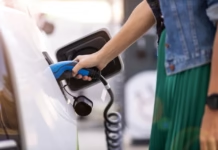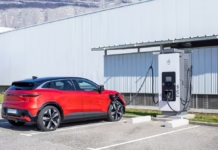Groundbreaking High-Performance Charging Infrastructure for Electric Trucks
Germany has inaugurated its first public Megawatt Charging System (MCS) point for battery-electric trucks. This marks a significant advancement in electric vehicle infrastructure. Located on the A2 motorway between Berlin and the Ruhr area at the Lipperland Süd service station, this milestone infrastructure supports the efficient charging of heavy-duty trucks. The launch is a key part of the government-supported HoLa (High-Performance Charging in Long-Distance Truck Transport) project, which seeks to test and establish a continuous high-performance charging corridor. Project aligns perfectly with a global push toward sustainable freight transport, reducing emissions while enhancing operational efficiency for electric trucks. With Europe targeting aggressive carbon neutrality goals, high-capacity charging systems like MCS are vital for making electric freight viable on long-haul routes .
Collaboration Among Industry Leaders to Accelerate Sustainable Logistics
The HoLa project highlights collaboration between industry leaders MAN Truck & Bus, logistics companies Duvenbeck and Hillert, and various research and governmental bodies. Both Duvenbeck and Hillert currently operate MAN eTGX electric trucks on the HoLa route, which runs between Berlin and the Ruhr area. These trucks benefit from the new charging infrastructure to optimize time-critical deliveries, illustrating the practical electric vehicle applications in logistics. Fleet managers emphasize the importance of this infrastructure to promote silent, clean, and sustainable transport solutions for the future. The project also showcases a cooperative approach to sustainable logistics. It combines innovative technology with responsible business practices to shape the future of freight transport .
MAN’s Commitment to Industry-Leading Electric Truck Innovations
MAN Truck & Bus is stepping up its commitment by integrating MCS technology into production vehicles expected in mid-2026. This system enables charging at megawatt power levels. Drastically reduces charging times and enabling electric trucks to operate on par with diesel vehicles in long-distance freight. This major technological leap addresses one of the significant barriers to electric truck adoption: downtime for charging. According to MAN’s Executive Board Member for Research and Development, Dr. Frederik Zohm, megawatt charging will transform freight by making long-haul electric trucking practicable without operational restrictions. This aligns with industry trends where ultra-fast charging capabilities are essential to increase electric vehicle adoption across commercial fleets .
Strategic Infrastructure Along the A2 Motorway Boosts Long-Haul EV Feasibility
The HoLa project is pioneering the first continuous motorway corridor equipped with MCS-compatible fast chargers along the A2 motorway. This corridor features charging stations at strategic points including Hamm, Bielefeld, Lehre, Dortmund, and Wustermark. The integration of both CCS and MCS technologies ensures compatibility with the latest electric truck models. Supported by a consortium of 13 partners from automotive, energy, network, and research sectors, with scientific input from Fraunhofer ISI, the initiative illustrates a comprehensive effort to address infrastructure challenges. The seamless charging corridor enhances route planning and operational flexibility. Thus supporting the broader transition to sustainable freight transport in Germany and potentially setting a model for other countries .
Future Outlook for Electric Long-Distance Freight Transport
The launch of this high-performance charging infrastructure marks the beginning of a new era in electric long-distance transport. As electric vehicle applications expand beyond passenger cars to include logistics and heavy transport, supportive infrastructure like MCS technology is key to success. The ongoing HoLa project signals an important step toward climate-friendly freight transport by extending the operational range and reducing charging downtime for electric trucks. Industry experts expect that such projects will accelerate electrification across European freight networks. Besides helps meet ambitious emissions targets while driving innovation in commercial transport technology.







